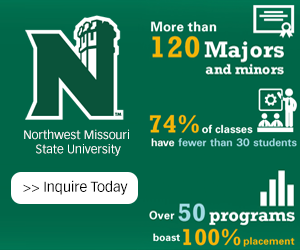Of the many types of broadcasting, radio has been around the longest. This veteran broadcasting medium is still going strong today, through countless radio stations nationwide catering to many interests. If you want to break into this diverse field, you should get started with an education in radio broadcasting!
Radio was the very first form of broadcasting, dating back to the early 20th century. That makes radio over 100 years old! Over that time, it has grown to encompass a wide variety of niches such as sports, the arts, and religion and it has permeated every part of the globe. International students who want to study radio broadcasting in the U.S. stand to join a long tradition of radio broadcasting in the country.
Radio Broadcasting Programs
Radio broadcasting programs take on many shapes in the U.S. If you are looking to major in “radio” or “radio broadcasting” it is most commonly offered as certificate or associate degree at community colleges or training facility. These programs feature major-oriented coursework with a limited number of other required classes, this allows international students to study radio broadcasting in a focused way through institutions that have the technology and equipment to provide valuable hands-on experience. The Academy of Radio & Television Broadcasting is one of the leading hands-on training facilities in the US that offers students real world training and experience in Radio and Television. With top notch equipment, students will have access to state of the art equipment spending most of their time in the studio being trained by working industry professionals.
Widening Your Studies
Devoted radio broadcasting programs are much less common at the four-year and graduate levels, though they do exist. Much more prevalent are more general majors that allow for specialization in radio, including programs such as “broadcast journalism” and “television and radio broadcasting.” To make sure that your academic work will concentrate heavily on radio broadcasting, review the required course curriculum and available electives to find out 1) what non-radio courses you'll be required to take, and 2) how much of your extra time you'll be able to devote to radio to specialize in it. Even if there aren't many required radio broadcasting courses in a major, a few advanced radio-specific electives can go a long way towards putting you on equal footing with those studying radio exclusively.
Completely ignoring classwork in other realms of broadcasting isn't advisable, however, as much of what you learn in non-radio broadcasting courses is applicable to radio. This is especially true in broadcast journalism, where the methods, ethics, and theory behind news and news gathering are arguably more vital to learn than the actual specifics of disseminating that news. Additionally, being a producer requires skills in managing employees and overseeing a broadcast that can also be used in radio. And though radio doesn't involve a camera, the equipment used for sound recording, sound editing, and the actual broadcasting itself are radio-centric skills that should be covered in any broadcasting program.
Choose a Field
A final way for international students to indirectly study radio broadcasting outside of specific radio broadcasting programs is to become an expert in a specific field that is often covered by radio – sports, politics, religion, the arts, and more. The first way to do this is by taking classes focusing on those areas but completely unrelated to broadcasting. Are you looking to share your passion for your religion via radio? Take a class on that religion's theology and history to make yourself better-informed on the subject. The second way to expand your expertise outside of broadcasting classes is to begin your own coverage of a subject. Start a blog that follows activities in politics, or a specific sports team, or emerging indie music artists. Whatever your interest, take the initiative to establish yourself as a pro.
Career Training Programs
Yet another way to study radio broadcasting is through focused career training programs. These programs often focus entirely on radio broadcasting, and the ones that don't offer enough flexibility in courses to turn your education in that direction regardless. These schools represent a convenient, fast, and relatively inexpensive to kick off your education in radio.
Radio broadcasting is an exciting world, and getting a good education is your start to being a part of it. Go ahead and see what kind of great radio broadcasting programs you can find!

